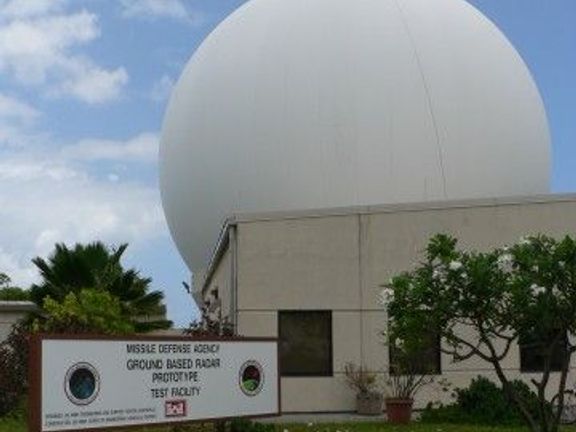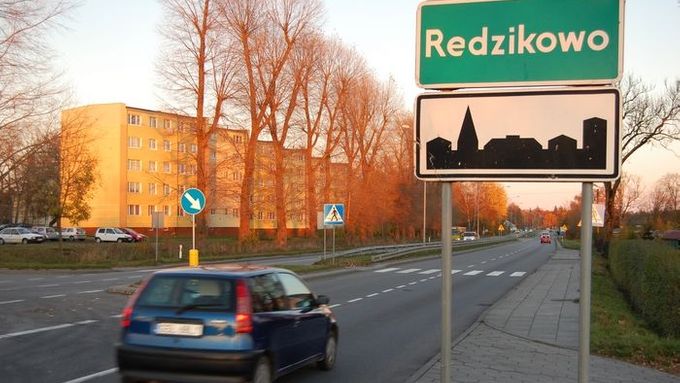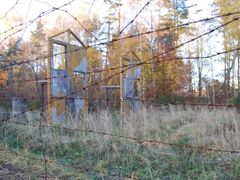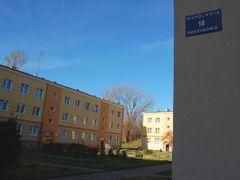Redzikowo - "But you aren't looking for the army base, are you? You would like to see the place where the anti-missile base will be. That's over there."
It seems that the future of Redzikowo, a small town of some 1400 ihabitants in the north of Poland, is obvious, at least from the point of view of those who live here. Even though it is still officially a secret, people here are preparing to live at the closest proximity to an American anti-missile base.
Last week, Russian president Vladimir Putin announced that if parts of the anti-missile shield, which the US government is developing, will indeed be placed in Central Europe, he would place Russia's Iskander missiles in Belarus as a counter-move.
Straight talk
If it wasn't for these threats, Redzikowo would be delighted to host any American base, people say.
But the idea of Russian missiles aimed towards their village or the possibility of terrorists wandering around their main square with bags full of semtex means that the American anti-missile base in Redzikowo simply causes mixed feelings.
"Let's talk straight. The main issue is, what benefits we will get from that," says Redzikowo's Mayor Andrzej Kotlicki (independent). "If there is going to be a missile base, we can do nothing against it. That depends mainly on the political negotiations and we have no say in that. But if it has to be here, we want to claim as many benefits as possible."
Among these are for example a new international airport, new roads and job opportunities.
It's no surprise that people of Redzikowo don't like to hear that their town might become a target of an enemy attack. But they are quick to add that the danger would always be there, with or without a base.

Still, some of them seem to be bothered by the possibility of a terrorist attack. "You never know, somebody will come to Slupsk, big town close to Redzikowo, and he leaves a bag on a main square. It explodes and several people die. This can happen, I am sure," says an older man on a bicycle.
Military town
Redzikowo is situated along the main road connecting the port cities of Gdansk and Szczecin, close to Slupsk. Baltic Sea is about 80km from here and the Russian enclave of Kaliningrad is within sight.
Soviet military barracks had been in Redzikowo after the WWII, the Polish ones replaced it after the collapse of the communist regimes across the former Soviet block.
Although soldiers are scheduled to leave this place in January 2008, military, it seems, is never going to leave Redzikowo.
Even though the village itself is prospering, there are still relicts of the past. Damaged, desolated houses are standing in the middle of the town and among the barracks too.
"To be honest I am really for having this base here in our village," says Mayor Kotlicki. "As far as I know, where there are American troops or their bases, there is a safe environment".
According to him, the presence of the US soldiers could drive away the vandals and drug addicts who come and shelter in the ruined houses around the village. Besides, he believes Americans would bring economic prosperity to the region, investing in the reconstruction and building of swimming pools and other facilities.
All quiet on the Polish front
Not everybody sees it that way, though. "They (Americans) will bring everything on their own and they will do everything by themselves. No jobs for us," a man on a bicycle says.
Comparing the situation here to the one in the Czech Republic, where people have been demonstrating and gathering signatures under various petitions for, but mostly against, the planned US military base, Redzikowo is a silent place.
Except for a few anarchists who were demonstrating in Warsaw, nobody raised their voices like the vocal opponents of the radar in the Czech Republic.
"There were no big demonstrations or petitions against it. I think the biggest problem is that we do not have any information. Nobody talks to us. What we know we know from reading newspapers," says Kotlicki angrily. And his co-villagers agree.
Post-election uncertainties
Americans want to hear a final word from the Polish side by the end of the year. But that might prove trickier than previously thought.
Poland, a loyal US ally which had sent its troops to Iraq and Afghanistan in a much more decisive way than their Czechs counterparts, has just emerged from parliamentary elections which have resulted in a change of government.
The new cabinet of the Prime Minister Donald Tusk was sworn in last week. And unlike the sabre-rattling Kaczyński brothers, Tusk has publicly stated before the elections that he is not fond of the idea of hosting the anti-missile base in his country. But then again, pre-election talk is one thing, and the post-election reality quite another.



